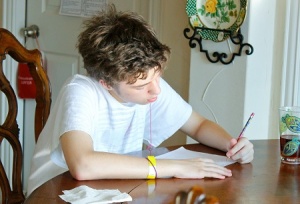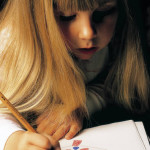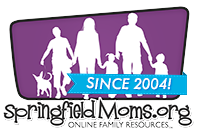One of the hardest times of the holiday season (or any special occasion season: Birthdays, Graduation, etc) is getting children to write their thank you notes. Most resist, if not openly rebel.
Can you blame them? Unwrapping gifts is messy, exciting fun. Writing a letter? That’s schoolwork! And schoolwork when school’s out? That’s punishment!
Still, thank you notes are required of all valued members of polite society. They must internalize the basic cultural compact that each gift given begets a thank you. Will impressing upon your children the duties required of them to uphold the fabric of society get them to willingly and eagerly put pen to paper on those special occasions. Of course not.
Here are some ideas that may get the job done and impress upon children exactly why thank you notes are so necessary.
First, let’s remember, it’s the holidays. What can we do to make the writing of thank you notes a holiday ritual like caroling or Elf on the Shelf? Think back to the start of the season. How did you involve the children in the trimming of the tree? Likely you did the heavy lifting for them: You set up the tree and unboxed the ornaments and had everything ready for them to join in the decorating. You likely also had Christmas music on the stereo and cookies and hot chocolate at the ready.
Just so with the post-Christmas morning thank you writing. Especially for small ones, have the notes out, the envelopes addressed and the music and cookies out before thank you time begins. (As your children grow older, more focused and more efficient, they can take on more of these mundane tasks themselves.) Make thank you writing a family activity just as much as opening stockings and stringing lights is. Obviously, you’ll be spending more time helping and hovering than the time it takes you to do the actual writing of your own notes, but the children need to see that is something everybody in the family is doing – not just them.
As with any discipline, the skill and art of writing of thank you notes takes a while to develop. Sure, you can probably knock yours out in one sitting. But you’re mature and have had years of practice. So, if the thank you writing ritual is one that must be repeated for several days so that the kids can turn out maybe two or three letters at a crack, then make that work. Better to have them run a few 5K thank you races than subject them to a never ending death march in order to get these letters done once and for all. Forcing kids to write thank you notes well beyond their endurance is a sure way to make them hate the thank you process.
Regardless of the inherent emotional and physical difficulty children find in writing thank you notes, there is the very real problem of figuring out what to say.
Sure, the beginning is easy as pie:
Dear Uncle Jack,
Thank you for the motorized solar system and planetarium.
Then what? Your child may be stuck for anything else to say and also may be legitimately frustrated at your insistence that she write ‘something more than that.’ After all, the entire purpose of the thank you note is to thank Uncle Jack for the gift. Well, there it is. Mission accomplished – in one sentence (Pulitzer Prize winning economy of effort, some would say).
And therein lies the misconception of what gift giving and thank you note writing is all about.
This is a lesson you’ll repeat every Christmas and birthday, and one you child won’t internalize for years: Giving and receiving gifts is never about the objects covered by the wrapping paper. (Which is why we never mention in a thank you note that the action figure was the wrong character, the sweater was too small, the book was one already on the shelf, the PJs were downright ugly: those are things that can be fixed privately and quietly by exchanging, re-gifting or donating to charity.)
When Uncle Jack sends you that motorized solar system and planetarium, what he is really doing is making a wish for you. He wants you to have the experience of capturing the cosmos in your very own bedroom; of having fun and learning about eclipses and the differing lengths between an earth year and a plutonian year; of doing better in science class because of what you’ve learned by playing with the toy he sent you.
When your children are stuck for the two or three sentences that must follow ‘Thank you for XYZ,’ ask questions that help them get into the gift giver’s head. “Why did Aunt Alice give you Little House on the Prairie?” If that answer is met by a shrug, don’t be afraid to provide more guidance: “Do you think maybe it’s because you read Little House in the Big Woods together at the lake last summer? Then maybe you should tell her that you had fun reading Little House in the Big Woods together last summer and can’t wait to read what happens to the Ingalls family next?” There are the next few sentences of a lovely thank you card. Sure, you spoon fed them to your daughter this time, and you might have to do so for quite awhile. But after a while, she’ll learn (or feel) the process naturally.
When we teach our children to write thank you notes, we are teaching them more than to report that UPS delivered the model race car to the door undamaged. We teach them that the thank you says much more than that the Illini Jersey fits just right. It says: I love that you thought of me, that you love me enough to make a good wish for me. And guess what? Your wish came true.
Rodd Whelpley is Program & Communications Administrator at the Illinois Municipal Electric Agency. He is also a freelance writer and editor. dad to Ethan, and husband to SpringfieldMoms staffer Lisa Whelpley.











Excellent Rodd! You are right on. Writing a thank you note is a very important skill for all children and adults to learn. Great ideas of ways to make it fun and not a chore! Off to write our notes!